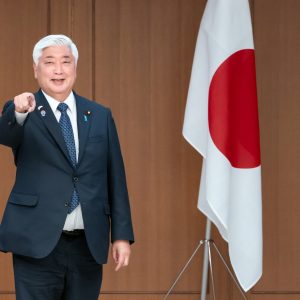U.S., Israel faceoff on Tel Aviv’s plan to overhaul judiciary
TEL AVIV, Israel – Israeli Foreign Minister Eli Cohen criticized U.S. Vice President Kamala Haris for her comments on controversial plan to overhaul judiciary.
The issue, which will affect the independence of Israel’s judiciary, has caused tension between the two longtime friends.
At a reception hosted by the Israeli Embassy in Washington on Tuesday, Harris called for “an independent judiciary” in Israel.
The reception was organized to mark the 75th anniversary of Israel’s founding.
She said the U.S. would continue to stand up for the values that form the foundation of the U.S.-Israel relationship.
She added that these values include strengthening democracies and building strong institutions with checks and balances.
“America will continue to stand for the values that have been the bedrock of the US-Israel relationship, which includes continuing to strengthen our democracies, which as the (Israeli) ambassador has said, are both built on strong institutions, checks and balances, and I’ll add; an independent judiciary,” said Harris in her speech.
The far-right Israeli government’s controversial plan to overhaul the judiciary has drawn widespread criticism in Israel and abroad.
Israeli Foreign Minister Eli Cohen later criticized Harris in an interview with the radio station KAN, claiming she had not read the reforms.
“I have already heard comments like this, no one could tell me what exactly what was bothering them,” he added.
The U.S. ambassador to Israel later told KAN in response to Cohen that the U.S. vice president has raised issues the administration addresses at every opportunity.
Cohen later attempted on Twitter to soften his remarks about Harris.
But did not shy away from his support for the reform plan.
He said the legal reform plan was an internal matter.
He said Israel will continue to be democratic and liberal, as it always has been.
Prime Minister Benjamin Netanyahu’s proposed judicial reform has thrown Israel into political turmoil in recent months.
The opposition sees the move as a power grab in favor of the executive branch.
On March 27, Netanyahu, who is under corruption investigation, announced a temporary halt to the plan.







